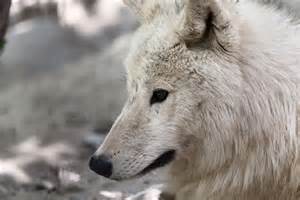
Wolf management, predation and control are hot subjects in the Northwest. (Image source: Publicdomainpictures.net)
By Dave Workman
Senior Editor
The elimination of a predatory wolf pack in northeast Washington State ignited a polarizing debate, and according to KING 5 News, the controversy took on a sinister tone with reported death threats to wildlife officials.
Washington Department of Fish and Wildlife (WDFW) officials decided to eliminate the Profanity Peak wolf pack in eastern Ferry County in August, because they were evidently responsible for a dozen cattle kills over the previous six weeks, according to KING. The cattle belonged to the same rancher as other livestock killed by a separate wolf pack a couple of years ago. That pack, known as the Wedge wolf pack, was also killed.
Some wolf advocates didn’t like that, even though the potential for lethal removal had been part of the discussion almost since wolf management started cranking up some time ago in the Evergreen State.
The controversy is not confined to Washington, or even the Pacific Northwest. Across the Northern Tier states including Idaho, Montana and as far east as Minnesota and Michigan’s Upper Peninsula, wolf restoration and recovery has been a prickly subject. On one side are environmentalists and on the other side are ranchers and hunters, with wildlife managers caught in the middle.
Over the years, there have been lawsuits, protests, conflicting documentation and nasty arguments. There have also been a few prosecutions for illegal wolf kills, and allegations of unauthorized wolf transplants. A couple of states (Idaho and Montana) where wolves have been delisted have allowed hunting, an activity that has also brought protests and legal action.
A study in Michigan revealed that more deer were killed by coyotes and bobcats than wolves on the Upper Peninsula. In Wyoming earlier this year, a wolf pack was blamed for killing 19 elk in what National Geographic called a “rare surplus killing.” That’s when wolves kill more animals than they can eat.
In Idaho about five years ago, a bowhunter killed a wolf that she said tried to attack her. In 2010, a teacher in Alaska was killed by wolves while she was apparently jogging near the remote village of Chignik, about 450 miles southwest from Anchorage.
Back in Washington, the challenge is to build trust among ranchers and conservationists, KING reported. If ranchers, whose cattle graze on public lands under lease, are encouraged to be part of the solution instead of a problem, their concerns about depredation must be addressed.
But this has set off another argument, about cheap leases of public land to ranchers. It’s a tradition that has existed for decades, and was highlighted three years ago by a standoff in Nevada.
This controversy has brought out the worst in some people, most notably readers of the Seattle Times responding to an Op-Ed authored by one wolf advocate who complained that “animals experience pain and loss.”
“Imagine what they experience when they see family members killed and maimed,” wrote Seattleite Brooks Fahy, identified as a wildlife filmmaker and executive director of an advocacy group called “Predator Defense.”
But the same might also be said about the livestock and other wildlife being killed by wolves. Cattle, sheep, deer and elk, especially those with offspring, also must experience fear, ranchers and hunters could counter.



